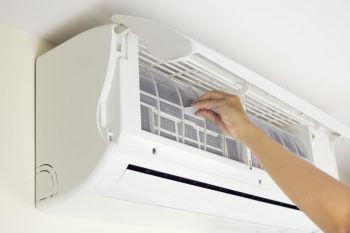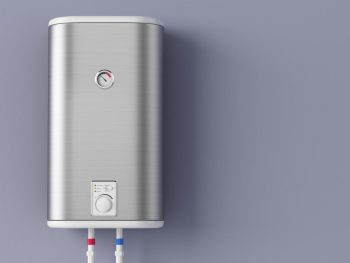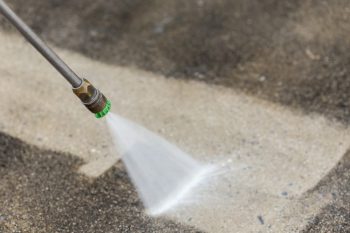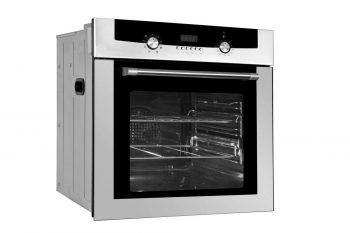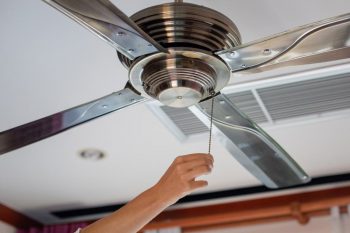
It is normal for refrigerators to make some types of sounds. New refrigerators make a little noise when operating unless they are turned off.
However, knocking sounds can be a real nuisance and give you sleepless nights.
Though knocking sounds can be as simple as too much vibration against the wall, they might also indicate something is wrong with your refrigerator.
To properly fix the issue, you need to diagnose the source of the problem.
Fortunately, the causes of the loud knocks in your fridge are not too complex.
We have gathered information about the probable reasons for the noises and how to fix the issue.
Are you looking for the cause of the knocking noises coming from your fridge? Here are five reasons why the refrigerator might be acting up:
- Malfunctioning evaporator fan
- Faulty compressor
- Water pipes
- Malfunctioning condenser fan
- Expanding and contracting air
Regular maintenance is crucial to keep your refrigerator working efficiently and improve its durability.
Five Reasons Why the Refrigerator Is Making a Knocking Sound

In this article, we will look at the five common causes of the knocking noise from your refrigerator and how you can fix them.
Hopefully, with the knowledge and tools, your fridge will hum again, and you can avoid encountering those sleepless nights again.
1. Malfunctioning Evaporator Fan
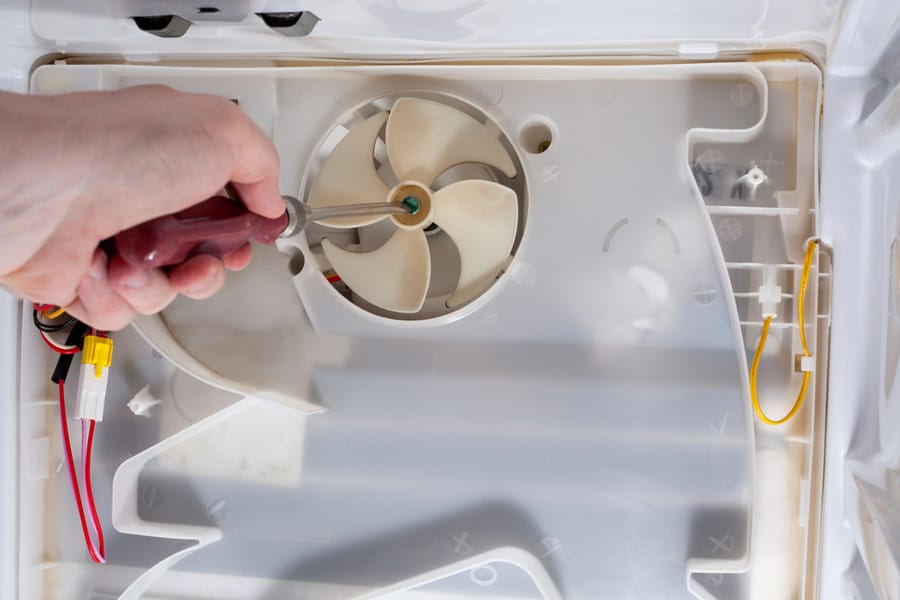
One of the common issues you might face with your refrigerator is a malfunctioning evaporator fan motor.
The evaporator fan circulates cold air around the freeze and fridge compartments. It pulls in the air and feeds it to the evaporator coils, where heat is absorbed. The cold air is pushed back into the compartments to keep food fresh.
However, malfunctions in the evaporator can lead to loud knocking sounds as the motor tries to spin the blades. Ice can build up around the fan, causing it to stall.
Low lubrication between the fan and the motor can also lead to an irritating knocking noise.
Additionally, worn-out bearings in the fan can also be the cause of the noise. As the motor spins, the bearings will grind and knock on each other as they try to move.
How To Fix a Malfunctioning Evaporator
The evaporator fan is behind the rear panel at the back of your freezer.
Remove the shelves in the compartment, and take out any screws that might be holding the rear panel to the back.
After taking out the panel, disconnect the wires that connect the fan to the freezer and remove the screws that hold it in place.
Removing the frost buildup should help resolve the issue if ice is stuck on the fan.
After defrosting, lubricate the fan bearings to ensure the blade spins efficiently.
However, if the bearings in the evaporator fan motor are worn-out, you will have to replace the motor unit.
Always replace the motor with a part recommended for your particular refrigerator model.
Do not use water to defrost the evaporator fan. The electrical components in the motor can get damaged.
2. Faulty Compressor
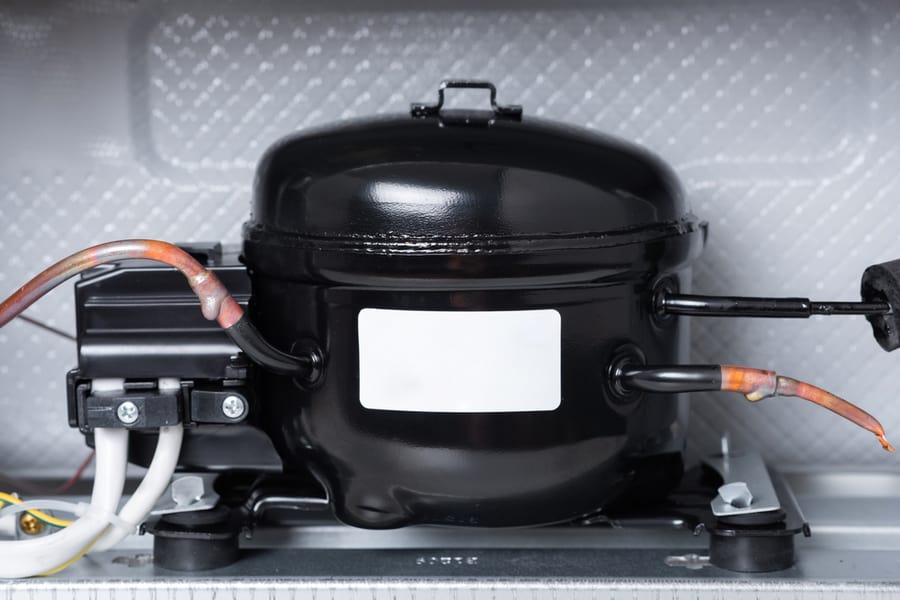
Another culprit behind your fridge’s knocking sounds is an old or faulty compressor.
The compressor is the heart of your refrigerator. It circulates refrigerant by compressing it and pushing it throughout the system.
Over time, too much strain on the compressor can damage its internal components, causing a knocking noise.
In addition, too much heat around the compressor can also lead to seals coming loose or breaking, resulting in some parts moving around.
Repairing a Faulty Compressor
Many things can go wrong while trying to fix a damaged compressor.
If you are considering getting the compressor fixed, you should always call a qualified professional to handle it.
However, before calling in a technician, you should check to see if any loose parts fly around behind the compressor.
Make sure to turn off the fridge first. Try tightening the parts and see if this resolves the knocking sounds from the unit.
3. Water Pipes
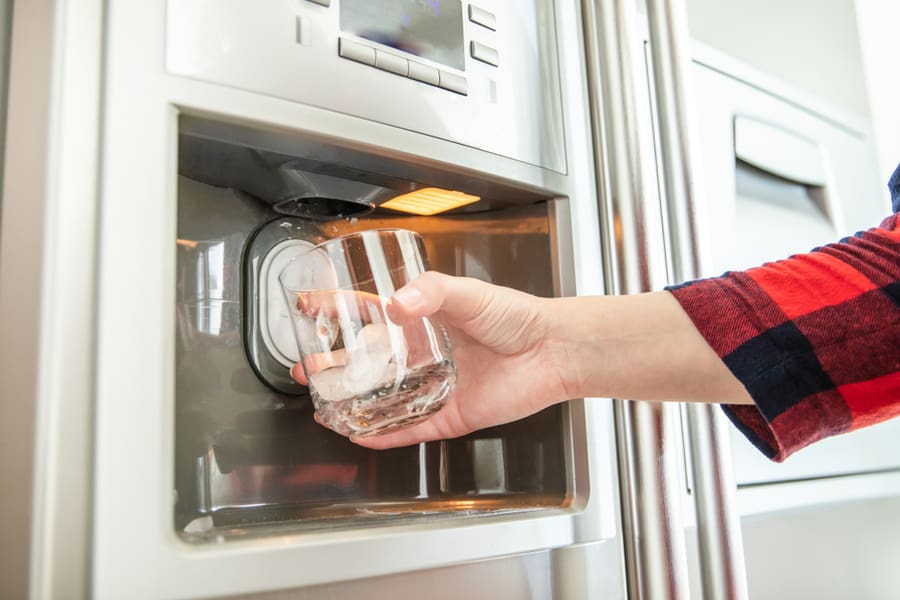
Pipe management might be the other reason the refrigerator makes loud knocking noises.
Refrigerators with an ice maker or a water dispenser have intake pipes that supply them with water.
In most cases, the hoses are connected to the unit at the back, close to the wall.
Inconsistent water pressure from the pipes can cause vibrations to the water fixture, hitting the back of your fridge and the wall. This can cause the knocking sounds you hear.
Fixing Water Pipe Problems
The best way to know if pipes are causing the noise is by listening closely to where the sounds are coming from.
Pipe problems are easy to fix. You should secure all your pipes to the wall or the back of the refrigerator to prevent excessive movement. This should stop that hammering effect.
4. Malfunctioning Condenser Fan
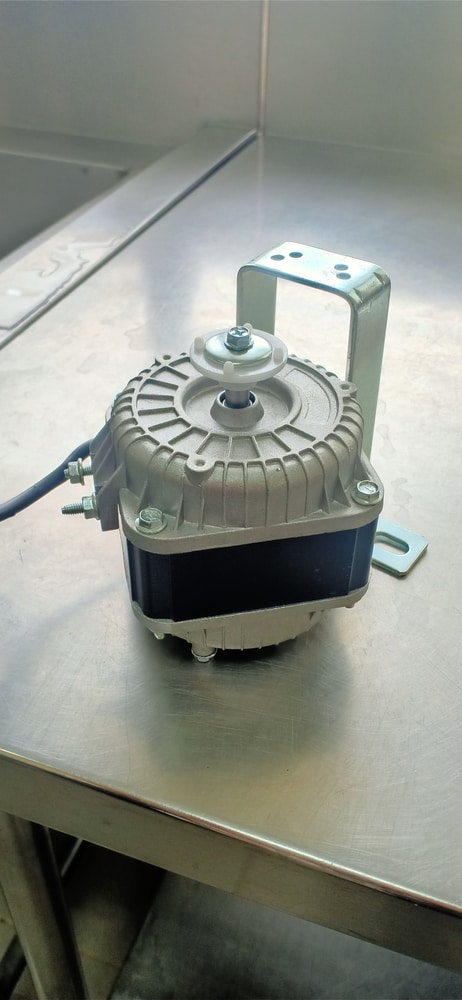
A malfunction in your condenser fan is also a common reason for the freezer or fridge making knocking sounds.
During the compression process, the refrigerant gets heated up, and the condenser coils transfer this heat and reduce the liquid’s temperature.
Since the transfer causes the coils to heat up, the condenser fan is responsible for cooling the coils. This is why the back of the refrigerator is hot.
However, the condenser fan can easily accumulate lint, grime, and dust.
Over time, the accumulation of the particles can hinder the blades from spinning, leading to the knocking noise you hear.
Foreign objects can also bend the blades causing them to get stuck as they spin.
Repairing a Malfunctioning Condenser Fan
Before beginning any repair project on the condenser fan, you need to unplug the refrigerator. The fan is easily accessible by removing the back panel of the fridge.
After removing the rear panel, disconnect the connectors and unscrew the fan from its housing.
If the fan is clogged, you can use a brush to remove dust or grime.
Remember to lubricate the fan and spin it around to see if it moves freely.
However, you must replace damaged condenser fans or motors.
Always get a genuine part recommended for your refrigerator model.
The condenser fan also has electrical components that can be damaged if you use water to clean it.
5. Expanding and Contracting Air

Did you know that air between the refrigerator might be causing those annoying knocking sounds?
Remember that the fridge has a lot of open space between its compartments and the housing panel. When the unit is hard at work, it cools the air in the compartments and the surrounding panels.
The air between these spaces expands and contracts during the refrigeration cycle, causing popping or knocking noises.
Luckily, air cooling and expanding between the panels should not worry you. Though the popping sounds can be irritating, you do not need to spend a dime on repairs.
Takeaway
Knocking noises from your refrigerator should never be ignored. Diagnosing the cause can help prevent irreparable damage that can break your wallet.
Regular maintenance will help you identify any potential issues before you are forced to buy a new refrigerator.
However, if you find the fridge making knocking noises, the most common reasons are condenser or evaporator fan malfunctions, faulty compressor parts, or pipes clanking on the refrigerator.
If these solutions do not work, you should find a repair technician to help you identify the problem.
Frequently Asked Questions
How Do You Fix Knocking Sounds in Your Refrigerator?
Before starting any repair work on your fridge, you need to identify the cause of the knocking noise.
The main culprits causing the issues are faulty or loose parts.
In some cases, water intake pipes or air in the fridge panels can also be the problem.
Should a Refrigerator Make Noises?
Fridges hum when they are operating normally. However, if you hear loud noises like hissing, knocking, or rattling, you should call a technician to look at the unit.


